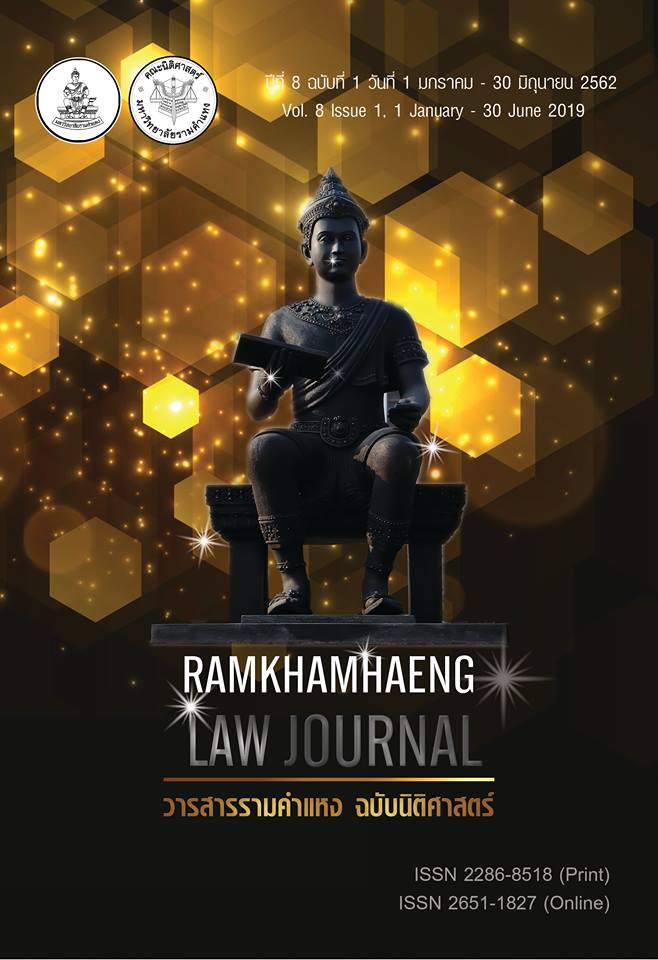มาตรการทางกฎหมายเพื่อบรรเทาภาระภาษีการรับมรดกและการรับให้อันเนื่องมาจากการได้สวนป่าเศรษฐกิจมาโดยทางมรดกและการให้โดยเสน่หา
Main Article Content
Abstract
Inheritance tax has been reintroduced in Thailand under the Inheritance Tax Act of 2015 as well as income tax exemptions on assessable income derived from certain gifts made during an individual's lifetime have been changed under the Revenue Code Reform Act (No. 40) of 2015, respectively. Unfortunately, these Acts are enacted to leave as many loopholes open as possible in recent years. One of the main loopholes in the two Acts involves the legal issues related to the inheritance and income tax liabilities of an heir to whom a woodland farm is bequeathed, in cases where the total amount of the woodland farm exceeds the inheritance tax threshold or a legitimate child of the donor has assessable income derived from a gift (such as a woodland farm) transferred during the lifetime of the donor and the amount of income exceeds the exemption threshold. The question arises whether such an heir or a legitimate child transferee of the woodland farm shall pay an inheritance or personal income tax, as the case may be. Another issue is related to a lack of a woodland tax relief as a result of inheritance and gift taxes, which would make it more likely that the heirs or transferees are able to afford to pay taxes on the woodland farm they receive. Thus, Thai inheritance and (personal) income tax law is a primary obstacle to maintaining family-owned woodland farms intact and viable, because most heirs potentially rely on a land-rich-cash-poor model of agricultural business that cannot be easily converted to cash. Hence, the heirs facing inheritance and income taxes are forced to sell family-owned woodland farms, including the land and trees, in order to raise money for their inheritance and income tax liabilities. Consequently, not only would Thailand’s economy be seriously distorted by these problems, but their effects on the environmental resources on which the nation itself depends could be gradually destroyed. The Thai tax provision laws, and all the rules that govern the inheritance and income taxes applied to woodland areas, as assisted by the Woodland Act of 1992, are not able to relieve the tax burden placed on the heirs and gift recipients due to the abovementioned legal issues and, hence, need amendments. According to legal comparative research, similar laws in the United States of America, the United Kingdom and the Republic of Ireland are considered and analysed to examine the nature of woodland inheritance law conceptions, which faces a large gap in the Thai legal framework.

